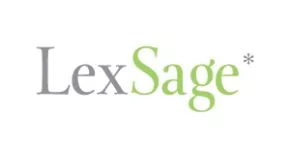The commercial production of industrial hemp was legalized in Canada in 1997. Industrial hemp is different from cannibis, which the Liberal government announced would be legalized in Canada on July 1, 2018. Canada is one of a limited number of countries that has legalized industrial hemp. For Canadian purposes, the definition of "industrial hemp" is found in the Industrial Hemp Regulations and is defined as to mean:
"the plants and plant parts of the genera Cannabis, the leaves and flowering heads of which do not contain more than 0.3% THC w/w, and includes the derivatives of such plants and plant parts. It also includes the derivatives of non-viable cannabis seed. It does not include plant parts of the genera Cannabis that consist of non-viable cannabis seed, other than its derivatives, or of mature cannabis stalks that do not include leaves, flowers, seeds or branches, or of fibre derived from those stalks."
Industrial hemp includes the derivatives of industrial hemp plants and plant parts. These do not include the flowering parts or the leaves. Industrial hemp and all forms of cannabis are controlled substances under Canada's Controlled Drugs and Substances Act (CDSA) and is listed on Schedule 2. Industrial hemp is administered as a narcotic product rather than an agricultural product in Canada.
There are four main markets for industrial hemp (food, animal feed, fibre and medicine). Many products contain industrial hemp (such as flour, oils, health creams & lotions, cosmetics, shirts, rope, etc.). Many of these products are imported into Canada. New derivative products are being developed. Imports of industrial hemp and derivative products are permitted under strict rules and licenses/permits. However, and this is important, the Canadian Government is very supportive of the development of the industrial hemp market.
Importers of industrial hemp and derivative products need to understand the Canada Border Services Agency ("CBSA") requirements and the Health Canada requirements. The CBSA has set out its policy in D-Memorandum D19-9-2 "Importation and Exportation of Controlled Substances and Precursors". Health Canada controls the importation, production, processing, possession, sale, transportation, delivery and offering for sale of industrial hemp. Health Canada provides a lot of information about industrial hemp regulations and policies on its web-site. The most helpful information is in the form of frequently asked questions. The Canadian Food Inspection Agency ("CFIA") administers the Seeds Act and Regulations thereto and the Plant Protection Act and Regulations thereto, which apply in respect to the importation of seeds and plants, respectively. The CBSA administers the Health Canada and CFIA rules at the border – they are the Canadian gatekeeper.
There are many Do's and Don'ts with respect to the importation of industrial hemp. We will list some of the more important ones:
- Individuals cannot import industrial hemp into Canada. There is no provision in regulation or under the Section 56 Class exemption to allow an individual to import/export industrial hemp. This means that only commercial importers may import industrial hemp.
- Don't provide incorrect or false information on applications or any documents filed with the Government of Canada. If information is determined to be false, the import shipment may be seized and destroyed.
- The CBSA may detain a shipment in order to verify whether a specific restriction or prohibition immediately applies and to check whether any related obligation (permit, etc.) has been complied with. The CBSA may seek advice from Health Canada.
- Importers must have a Health Canada license. If you do not have a license, you will not be permitted to act as the importer of record with the respect to the importation of industrial hemp. The import shipment may be seized and destroyed if the importer does not have a valid license.
- No holder of an industrial hemp licence may import industrial hemp without a valid specific import permit. Specific import permits for the importation of industrial hemp are only valid for one shipment of industrial hemp and the amount of the shipment may not to exceed the amount specified on the permit. Industrial hemp may only be imported into Canada at the port of entry specified in the import permit and must be delivered to the place specified on the permit. The import shipment may be seized and destroyed if the importer does not have a valid specific import permit.
- Legal seed importers have to register with the CFIA and comply with CFIA rules and policies. Only licensed growers can import industrial hemp seeds into Canada. A valid specific import permit is required to import seeds. All seeds must be cleaned prior to importation (free of soil peds, plant debris and related matter) and accompanied by a Phytosanitary Certificate.
- Importers of certain derivative products must have licenses. For example, industrial hemp health products and cosmetics will require a Health Canada approval. What type of license depends upon what is the derivative product.
- Import shipments of industrial hemp derivative products must be accompanied by a certificate of analysis from a competent laboratory in the country of origin of the derivative or product stating that the derivative or product contains a concentration of 10µg/g THC or less;
- Use the correct H.S. tariff classification for the goods you are importing. The H.S. Code may depend on the chemical composition of the goods being imported. The goods may be seized based on a technicality if you are not using the correct H.S. tariff classification number.
- It is important to know and comply with any labeling requirements.
- It is recommended that the importer of industrial hemp and derivative products seek legal advice when completing licenses and other documentation because incorrect information may result in the loss of import privileges (see 2 above).
The content of this article is intended to provide a general guide to the subject matter. Specialist advice should be sought about your specific circumstances.

